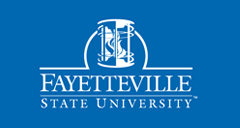Abstract
This study explored the role of parenthood on adult learners who were parents of minor children and gaining an understanding of their needs while attending a college or university. A qualitative phenomenological approach and purposive techniques were used to identify and recruit adult learners who were parents of minor children located in the general area in the Western Region of the United States. Data were collected using semi-structured interviews and Yüksel and Yıldırım (2015) guide used for phenomenological narrative data analysis. Recorded interviews were transcribed into text and NVIVO software was then used to organize the interview data and uncover any connections or themes of the data. The key findings fully supported Bean and Metzner’s (1985) theory of adult learner’s attrition model. Study participants cited that time management skills, dependable childcare, and faculty support affected their decision to persist at a college or university. Additionally, adult learner -parents indicated that their experience would be less challenging if childcare was available at the campus at the times that their class are scheduled. Based on the results of this study, it is recommended that higher education leaders tasked with serving a large population of adult learners who are parents to focus on promoting childcare centers or discounts to student enrolled at the institution at the times that they are scheduled to take classes and encourage faculty members a supportive relationship for learner-parents. Recommendations for future research include exploring the relationship between environmental, psychological, and academic supports and student-parents’ decision to persist.
Recommended Citation
Lewis, Emetrude and Bailey-Webb, Alexia
(2019)
"Parenthood and Persistence of Adult Learners in the Western Region of the United States,"
Journal of Research Initiatives: Vol. 4:
Iss.
2, Article 1.
Available at:
https://digitalcommons.uncfsu.edu/jri/vol4/iss2/1
Included in
Adult and Continuing Education Administration Commons, Community College Leadership Commons, Curriculum and Instruction Commons, Higher Education Commons
